Gnosis |

|

|
| Written by Editor VOPUS | |
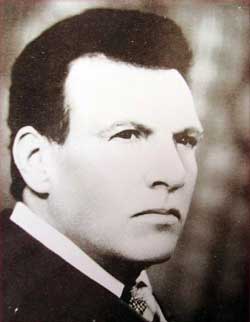
Self-knowledgeTo answer seriously to the three great questions of the eternal philosophy: Who are we? Where do we come from? and Where are we going? is a primary necessity of the human being of all times. Since the most ancient times man sought the answer to the questions that troubled him, sought to find what was he before he was born, what is he now and what will he be after he will leave this world – or in other words where do we come from, why do we live, where are we going. The honest seeker began wisely to look for answers inside, to know oneself. As a proof in this way, on the frontispiece of the Temple of Apollo in Delphi an old maxim says: 'Homo nosce te ipsum' (in greek Gnothi Seauton, attributed to the first greek philosopher Thales) and it means 'Man, know thyself' the continue being 'and thus thou shall know the universe and the gods'. We notice here the word knowledge. Nevertheless we talk about a superior knowledge, transcendental, a knowledge of what is truly Divine. 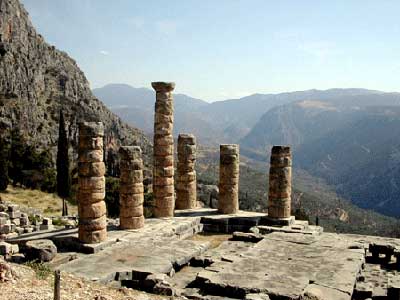 Types of knowledgeThere are indeed many types of knowledge. The common, ordinary knowledge is necessary in the day to day life to manage more easily in the society, at work, home; is the knowledge that allows us to earn our bread, to prepare the food, to support our home etc. Intellectual knowledge is the one we acquired from education and intellectual experience and is conditioned and limited by circumstantial factors, that are falling within the form or stage of society at a given time. And there is the superior knowledge, the knowledge of the mysteries of the human being beyond the material world – to this type of knowledge refers Gnosis. Every human being has the ability to investigate and to find the answers to the existential questions. This knowledge is inside of us, this is Gnosis. The etymology of the term GNOSIS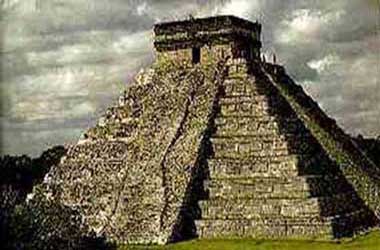
Announcing the dawns of a new day for the contemporary man, Gnosis of yesterday, of today and of always rises as a sun of welfare. The dictionaries emphasizes that this word, 'Gnosis', is of greek origin and refers to Knowledge in a general sense. Although, in a more profound way, the word 'Gnosis' alludes to a revealed knowledge, to a Modus Operandi that explains the physical and metaphysical phenomena regarding the Universe and man as its 'protagonist'. The basic principles of the great wisdom are always the same. The same teachings were taught by the great initiates of all times in the schools of mysteries. Buddha, Jesus, Mohammed, Quetzalcoatl–all have transmitted a teaching that is completing, but which in essence is the same being only adapted to the period of time and to the understanding of the people from those times. Even nowadays is the same as always but it is brought in a revolutionary form according to the age in which we live. And it has the same objective: the union of man with the divine. Because we know that this rupture occurred in ancient times together with the original sin from the Hebrew Bible, with that fall of the angels. Gnosis shows us that it is possible to return to the bosom of the divinity, and it helps us do it. Gnosis refers to the science of all sciences, that art which, as fruit of a revealed inspiration, exalts the artist until it makes him merge with his work. Gnosis, not being a philosophy, is nevertheless the missing link that unites the historical chain of the development of human thinking and it gives us, also, precise and logical answers to the disquiting dilemma of the 'to be' or 'not to be', which debates on the conscious and cognizable field of every person. 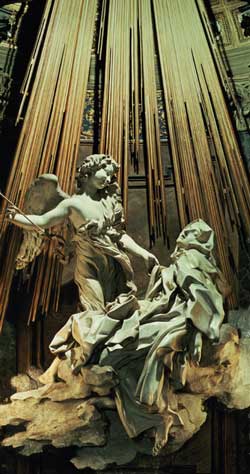
'Gnosis is a cosmic teaching that aspires to restore inside everyone of us the ability of living in a conscious and intelligent manner' says the father of contemporary gnosis, Samael Aun Weor. It is totally separated from the arid, ambiguous, speculative intellectualism, from the arid world of theories that creates confusions and intellectual doubts. Without being a religion, Gnosis is the key to the legitimate 'religare', sustained in any religious system, whichever its age of appearance and its way of expression would have been. In its turn, the word GNOSIS gave origin to other new concept-words, so we have PPREGNOSTIC: Adjective that indicates those forms of thinking which from outside they resemble with the authentic gnosticism although they don’t include in their general structure the finality of Gnosis. PROTOGNOSTIC: Is any incipient or germinal system aspiring to the reunion with the gnostic source. Many definitions have tried to monopolize the true meaning of what we have to understand by Gnosis or Gnosticism. This fact creates certain difficulties when trying to broadly present the development of the gnostic thinking, largely due to the fact that many trustworthy documents that were structuring the gnostic system of yore, today no longer exist. In consequence, many 'adventurous' statements have been issued, promoted by some investigators who were missing the adequate sources regarding these topics. The impartial investigators always stated that Gnosticism is a very personal, intrinsic phenomenon tied to the activity of Consciousness in man, in his striving for deciphering the mysteries that relates his existence to that of his Creator, as well as the results that derive from this unknown connection. Thus Gnosis becomes a revelating knowledge, eminently practical, seeking to indicate the right attitude of man in front of life and to lead it, through some personal living experiences, to the solving of the enigma of his own existence. This universal and atemporal knowledge from which emanated the great theological, philosophical, artistical and symbolical similarity of the great civilizations of the past, is the proof that all have originated from the same source. 'JANA', 'YANA', 'GNANA' or 'GNOSIS' is the science of JANUS or the science of INITIATIC Knowledge, the science of ENOICHION or of the Prophet. The word 'JINA' from which the term 'Gnosis' comes is only the pronunciation in Castilian of the word mentioned above; its true writing derives from Persian and Arabic and is not 'JINA', but 'DJIN' or 'DJINN' and in this way we see it used by many authors. 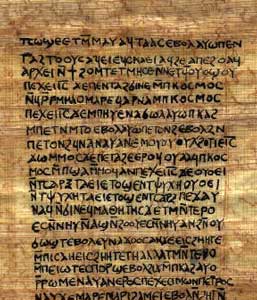
A person with a minimum of erudition in the field will not fall today, as before, in the simplistic error of revealing the Gnostic trends of some exclusive spiritual side. Although it is certain that we must take into account the gnostic teachings contained in the Hellenistic and Oriental elements, including Persia, Mesopotamia, Syria, India, Tibet, Palestine, Egypt etc. Let’s not ignore the gnostic principles perceptible in the sublime cults of the Nahuatl, Toltec, Aztec, Zapotec, Mayan, Inca, Chibcha, Quechua populations etc. in Latin America. Over time those who sought 'phenomena', passionate about the picturesque of the 'extra-ordinary' things, trying to explore the world beyond the dogmas, even if they didn’t investigate in depth the sacred teachings, were the propellers of some new, autonomous conceptions and with this they have made possible the flourishing of the investigations on the religious history of gnosticism, which we are witnessing for more than thirty years. History enriched today, fortunately, through the discoveries at Nag Hammadi, Turfan and Qumran and through the increasing attention that is given to the traditional thinking of the Orient. The gnostic testimonies we have till today are spreading to different times and places. And what is inconvenient for many authors, results in being an advantage for Gnosis, because whichever the environment of its birth and existence would have been, the gnostic testimony always expresses the same reality: 'a complete understanding of everything there is', by which it’s understood the existence of everything. And in this understanding two elements interfere:
a) Gnosis; Theologically we could assert that Gnostic is the one who possesses Gnosis, The Knowledge. But it is clear that this knowledge escapes the usual rational analysis; the correlation of this Knowledge is the infinite, spiritual inwardness of the person.  Therefore, it is evident that anywhere a man was able to approach the supreme reality that dwells within him, he could receive the true light that emanates from the initial source formed by 'his Divine Monad', to use the language of Leibniz. It is therefore anachronical to think of Gnosis as a simple metaphysical trend introduced in the bosom of christianity, as suggested by some authors or dogmas. Gnosis is an existential attitude with its own characteristics, rooted in the oldest, most elevated and refined esoteric aspiration of all nations, whose history, unfortunately, it is not well known by modern anthropologists Just as Samael Aun Weor states 'Gnosis is a very natural functionalism of the consciousness; a PHILOSOPHIA PERENNIS ET UNIVERSALIS'. Undoubtedly, Gnosis is the knowledge enlightened by the Divine Mysteries, reserved and revelated to a self-selected elite. The word 'Gnosticism' closes in its grammatical structure the idea of systems or trends dedicated to the study of Gnosis. This Gnosticism involves a coherent, clear, precise series of fundamental elements, verifiable through the direct mystical experience: 'The curse, from a scientifical and philosophical point of view', 'Adam and Eve from the Hebrew Genesis', 'The Original Sin and the exit from Paradise', 'The Mystery of Lucifer-Nahuatl', 'The Death of the Self', 'The Creative Powers', 'The Essence of the Salvator-Salvandus', 'The Sexual Mysteries', 'The Inner Christ', 'The Igneous Serpent of our Magical Powers', 'The Descent in the Infernos', 'The Return to Eden', 'The Gift of Lucifer' etc.The one who never bothered to explore in depth the doctrinal fundamentals of the eternal Gnosis can easily fall into the temptation of forming a quick idea about what implies this knowledge and, in consequence, to little objective and real. For centuries in a row people have ignored the gnostic postulates about man’s condition in the creation. It is undoubtedly that humanity has degenerated with the passing of the centuries and, to proove this, it is enough to look at the dark pages of the black history and we will realise that instead of becoming better, we became worse in all respects. Thanks to Gnosis, mystique can become scientific and science can become religious, thus crossing the abyss created by the intellect between what we call God and man, as a protagonist of creation. It is obvious that the finality of the science of JINA or Gnostic is the awakening in man of all his infinite and latent possibilities. This work is known in the gnostic jargon as the 'inner self-realization of the Being'. 'Seek the truth and it shall set you free!'  |
| < The Practice of Gnosis | The Gnostic Wisdom > |
|---|
| Science |
| Art |
| Philosophy |
| Mysticism/Religion |
| Barbelo: Gnosis Magazine |